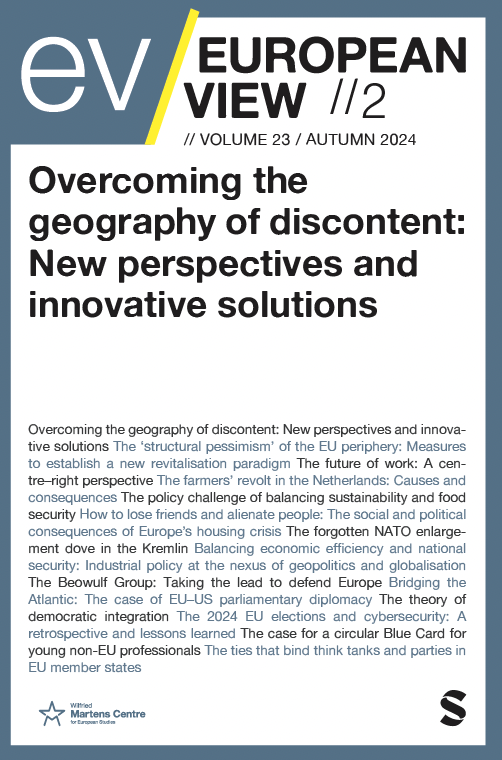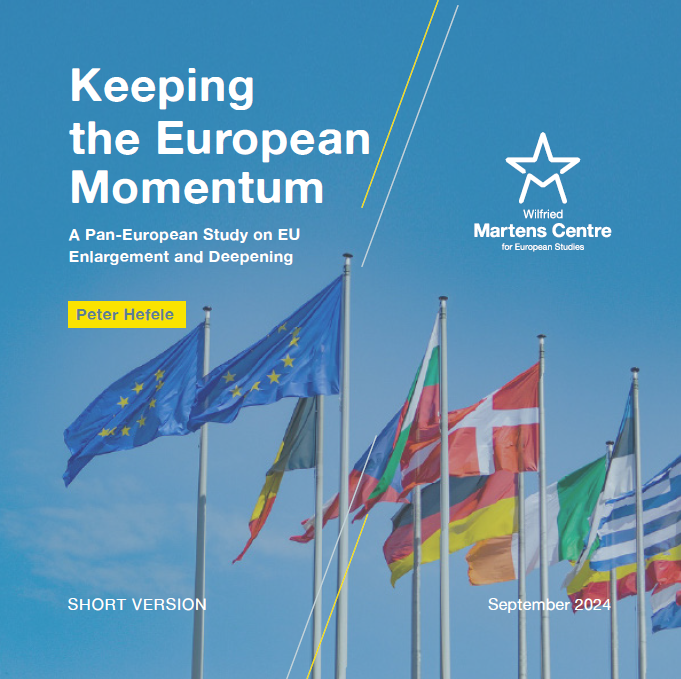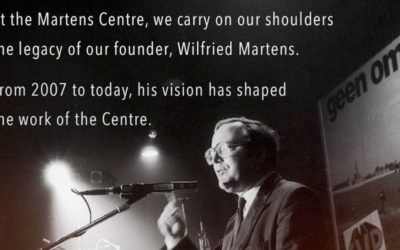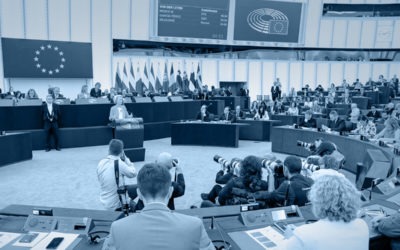Robert Menasse’s ‚The Capital‘ – How not to defend European integration
06 February 2018
With Die Hauptstadt (The Capital), Austrian writer Robert Menasse has written the ‚first great EU novel‘, according to a review in POLITICO, and won the prestigious ‚Deutsche Buchpreis‘ for the political bestseller of the season in Germany and Austria.
Since it plays mostly in Brussels and richly depicts Eurocrats, it has also caused a largely positive stir in the so-called “Brussels Bubble“. While the text has some merits in terms of its readability and humour, it is a complete failure as a political statement.
“Ceci n’est pas un roman” is what Belgium’s surrealist genius René Magritte would have said about Menasse’s book. In that sense, Robert Menasse’s cri de coeur for Europe is not a novel, but a manifesto posing as a novel. Consequently, evaluating it is not a question of literary taste, but of political common sense.
Dramatis personae include a Belgian holocaust survivor, a professor and a pig farmer from Vienna, a Belgian police detective, a Catholic killer from Poland and numerous Eurocrats from the EU institutions. The backbone of Menasse’s plot is the quest of those Eurocrats for the proper and most meaningful way to celebrate the sixtieth anniversary of the Commission’s creation.
His pet protagonists develop the idea that Auschwitz is the right place to do so. At the end, the bad guys – especially in the Council Secretariat and the member states – successfully nip the noble initiative in the bud. All this is embedded into a thriller plot with a murder at the beginning and a terror attack at the end, and a continental conspiracy in the middle.
To begin on a positive note: Menasse’s book is not without its merits. He spent years living in Brussels to prepare the writing, and this is apparent in the detail of place descriptions and the biographies and personalities of the protagonists for which he conducted dozens of in-depth interviews. For a novelist to give the faceless bureaucrats of Brussels a face, is a laudable undertaking.
And he is entertaining. Take, for example, the pig as leitmotif of the entire narrative. Moreover, Menasse pretty successfully inserts rudimentary explanations of Brussels decision-making into a fictional plot. Finally, his attempts to include contemporary Eurodebates in the dialogues of his characters is worth acknowledging.
While the text has some merits in terms of its readability and humour, it is a complete failure as a political statement.
But let’s take a look at Menasse’s politics. To put his central message in a nutshell: nationalism always culminates in a holocaust, and history’s most important lesson is to overcome the nations of Europe in a unitary state whose avantgarde is the European Commission in Brussels. In other words: the only valid answer to Auschwitz is a European Republic!
It’s no coincidence that he repeats verbatim the thesis of German political pundit Ulrike Guerot, elaborated in two books 2016 and 2017: one market, one currency, one democracy – even at the price of a “civil war“ at least metaphorically.
At this point, one might reply that history’s best answer to Auschwitz is the State of Israel, or, more precisely: the logical consequence of murderous antisemitism (which has been around for a thousand years, i.e. longer than modern nation states) is the creation of a Jewish state capable of defending itself. But that’s a separate debate.
For Menasse, the answer to all of the old continent’s ills is the mantra of: More Europe!, i.e. ever more competences for the central institutions until there is only one European state left. And when people (in the novel as well as in real life) answer that Europe’s nations cannot and should not be abolished, he replies blandly that around 1800, that’s what conservatives answered about slavery.
A smart move by Menasse but an absurd reply when keeping in mind that the modern nation state is a child of the enlightenment, and that in the last 300 years, it has brought forth the best as well as the worst in people – just like religion. The nation state has also weathered all attempts to make it obsolete, such as marxist internationalism, pan-slavism and other ethnocentric movements.
Quite arguably, it’s the attempt to abolish Europe’s nations that would give a boost to national populism and end in a break-up of the Union. In reality, less Europe is actually more – that is my personal lesson of over 15 years in different Brussels institutions. It is not a weakness, but the decisive strength of the European integration process is that it hedges in Europe’s nation states and pools elements of their sovereignty instead of abolishing them.
On economics, Robert Menasse staunchly defends classical leftist ideas: he despises austerity, believes in grandious public investments and glorifies a European welfare state.
All these are legitimate views (although opposed to mine) but what riles me is Menasse’s clearly expressed world view in which only people with leftist ideas such as the above can be idealists whereas people with more conservative views exclusively appear as lobbyists‘ who are interested in a lot of things but never in the common good.
Of course, Menasse is in good company with this totally unquestioned assumption. The entire post-1968 intellectual Left is built on this idea. But that doesn’t make it any more legitimate.
The point at which Menasse completely discredits himself is the utterly bizarre character of the Polish Christian killer, one of the book’s central protagonists. He is central to the plot because his murder operation at the beginning and escape through Europe, defines the entire story and gives it much of its suspense.
This ‚żołnierz Chrystusa‘ (soldier of Christ) is steeped in the tragic insurgent tradition of his ancestors and belongs to an ultra secret Catholic sect whose headquarters are located in the catacombs under the city of Poznan. Its purpose is to pre-emptively and extralegally kill potential terrorists, in cooperation with NATO.
Consequently, NATO also abruptly ends the police investigation of the murder and has the Belgian police destroy all evidence. If Dan Brown comes up with comparable ideas in novels such as ‚The Da Vinci Code‘, one may still define this as fictional thriller writing. But in Menasse’s case, these extravagent tales require closer scrutiny because they form an integral part of his political manifesto.
Here is where the three tendencies combine: a resentful anti-americanism, West European condescension towards Central Europe and a politically correct appeasement of Islamism. According to his own words, Menasse introduced the character of the ‚Soldier of Christ‘ and his continental conspiracy only in order to show that it’s not only Muslims who commit religiously motivated acts of violence.
But unless you believe that Anders Breivik was part of a hitherto undiscovered Vatican conspiracy, there simply are no killers in the Catholic Church, at least for a couple of centuries now, neither in Brussels nor anywhere else in Europe. However, numerous jihadist killers have originated in Molenbeek, a Brussels neighbourhood which is omitted from Menasse’s book despite the shadow it has cast over Brussels in recent years.
Jihadist terrorism receives only hush-hush mentions on the book’s final pages, in a rather listlessy inserted terror attack. The administrative chaos and police sloppiness, the tolerance of the intolerable and the hare-brained multiculturalism which led to the real life attacks of 2016 (and which are very much part of life in Brussels today) do not appear in Menasse’s manifesto.
Robert Menasse feigns openness and tolerance, but in the end presents a firmly closed, leftist West European world view. To Menasse, the critics of this world view are at times an existential threat to Europe and at times just a laughable nuisance. But they are never morally legitimate.
To me, this is an ominous way to undermine our conetmporary understanding and experience of European integration. Less demonisation and more listening would not only be a great antidote to the fetishism of ‚More Europe!‘, whilst also being a brilliant way to immunise Europe against Auschwitz-style facism and other forms of fanaticism.
ENJOYING THIS CONTENT?






















